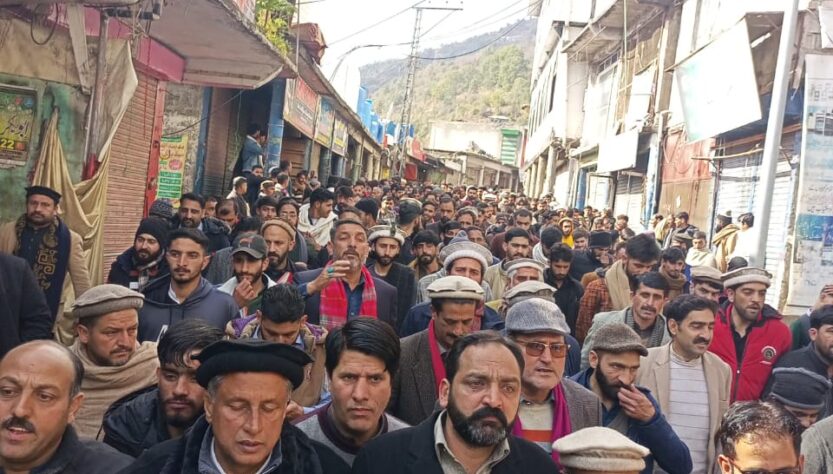In 1947, a unique event occurred in the history of humanity when members of one religious community insisted that they could not live with the members of another religious community. They demanded that India, the country where Hindus and Muslims had coexisted for more than five centuries, be partitioned to provide a separate country for Muslims.
Two decades later, another unique event took place that proved that the theory that a modern nation could gain strength through religious identity was disproved when Pakistan was further divided, as linguistic identity of the Bengalis overtook the religious identity on which the nation had been created.
The greed of Jinnah and others to grab areas with Muslim majority resulted in a scramble that made the partition of the country a clumsy and bloody affair. One part of this clumsy-bloody affair was the division of Jammu and Kashmir into two, one part under India’s control and the other under Pakistan’s.
When the British partitioned India on the eve of their departure, the question of whether the 565 princely states would remain with India or join the newly formed country of Pakistan arose. The British left the choice to the kings and princes who ruled these states. Many of the kings insisted that they would maintain their independence and not join either country. At that time, the then Home Minister, Sardar Vallabh Bhai Patel, put his foot down and forced the princely states to join India.
Jammu and Kashmir became a tricky affair, as King Hari Singh, the ruler of that state, insisted upon retaining his freedom. Later, the King signed an Instrument of Accession by which the state of Jammu and Kashmir became a part of India. However, Pakistan indulged in an act of aggression and occupied a part of the state. This part is now called POK, or Pak Occupied Kashmir.
From the above historical background, it is obvious that Pakistan’s occupation of POK is a condemnable offence by one nation against another nation and its people. This heinous offence has caused immense damage to Pakistan itself, to India and to the innocent people of Jammu and Kashmir.
The worst impact of the J&K issue on Pakistan has been the uprooting of the democratic process there. Right from its inception, Pakistan’s army brain-washed their politicians and their people that the occupation of the entire J&K was well within their reach. Therefore, they demanded a lion’s share of the finances for keeping military parity with India, and at every opportunity, they dethroned the elected governments and sat on the seats of power. Even when the country had an elected government, the real reins of power were with the army.
The issue of J&K became a handy tool for the generals to whip up emotions among the masses and create a demand for a strong army. Fear of India and hatred for the Hindus formed the contents of the textbooks in Pakistani schools, and this prepared the nation for sacrificing everything to win the war of Jammu and Kashmir.
It has been a tragedy worse than any other in history. The Heaven on Earth was, for decades, turned into a graveyard of the youth spattered with blood of innocent people. Pakistani army was under compulsion to keep up the fire of what they have been calling “The Struggle for Self-determination” of the people of Kashmir.
Now, events have taken a turn, and the fraud played by the Pakistani army against their people has been shown in bright light.
The previous governments made the mistake of trying to settle the issues of J&K by involving Pakistan. This resulted in consecutive failures. That is because settlement was not in Pakistani army’s favour. They wanted to keep the cauldron boiling. Therefore, they would allow their governments to take a few positive steps and then pull the rug from under their feet. The army would, meanwhile, maintain a constant supply of trained and armed terrorists to ensure that the state remained disturbed. This resulted in multiple damages to India. Our army officers became victims of terrorism. Huge amounts of funds that could have been used for the development of the state were squandered on military operations, or on keeping the so-called leaders happy who played a double game, instigating violence while seeming to work for peace. Also, the action taken by the army from time to time caused a distance between the army and the people.
The present government at the centre changed the orientation to the Kashmir issue. The change in policy was based on the question: Why should we involve Pakistan in the matters related to a state that is entirely our own? This was a huge step forward, and within a couple of years, the political atmosphere and the law-and-order situation in the state has undergone a sea change. The change in the state is now recognised by the entire world, and the huge inflow of tourists is a testimony to this.
During the past couple of years, the state of Jammu and Kashmir has seen dramatic developments in infrastructure. The steps taken by the Government of India for the development of Jammu and Kashmir have now caused an uprising in POK. The people there point to the contrast in the civic facilities available to the people in the Indian part of J&K and the miserable condition of the people in POK. Since many of those living on the two sides of the LOC are related to each other, the grievances of the residents of POK are gradually building into a crescendo. They question the exploitation of their part of the state by a dictatorial regime in Rawalpindi.
Pakistani government and the army have been spending huge funds on a drive called Kashmir Solidarity Day, but such artificial efforts cannot negate the reality of a demand for extrication from Pakistan’s control that is becoming stronger day by day.
The time has come when India must act to free the people of POK from the forcible capture by Pakistan.



